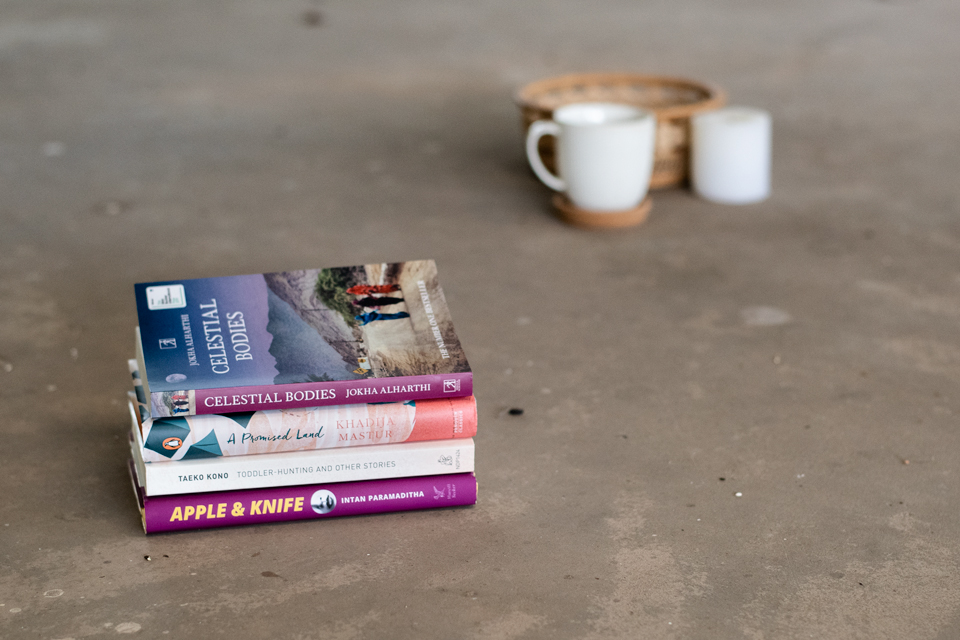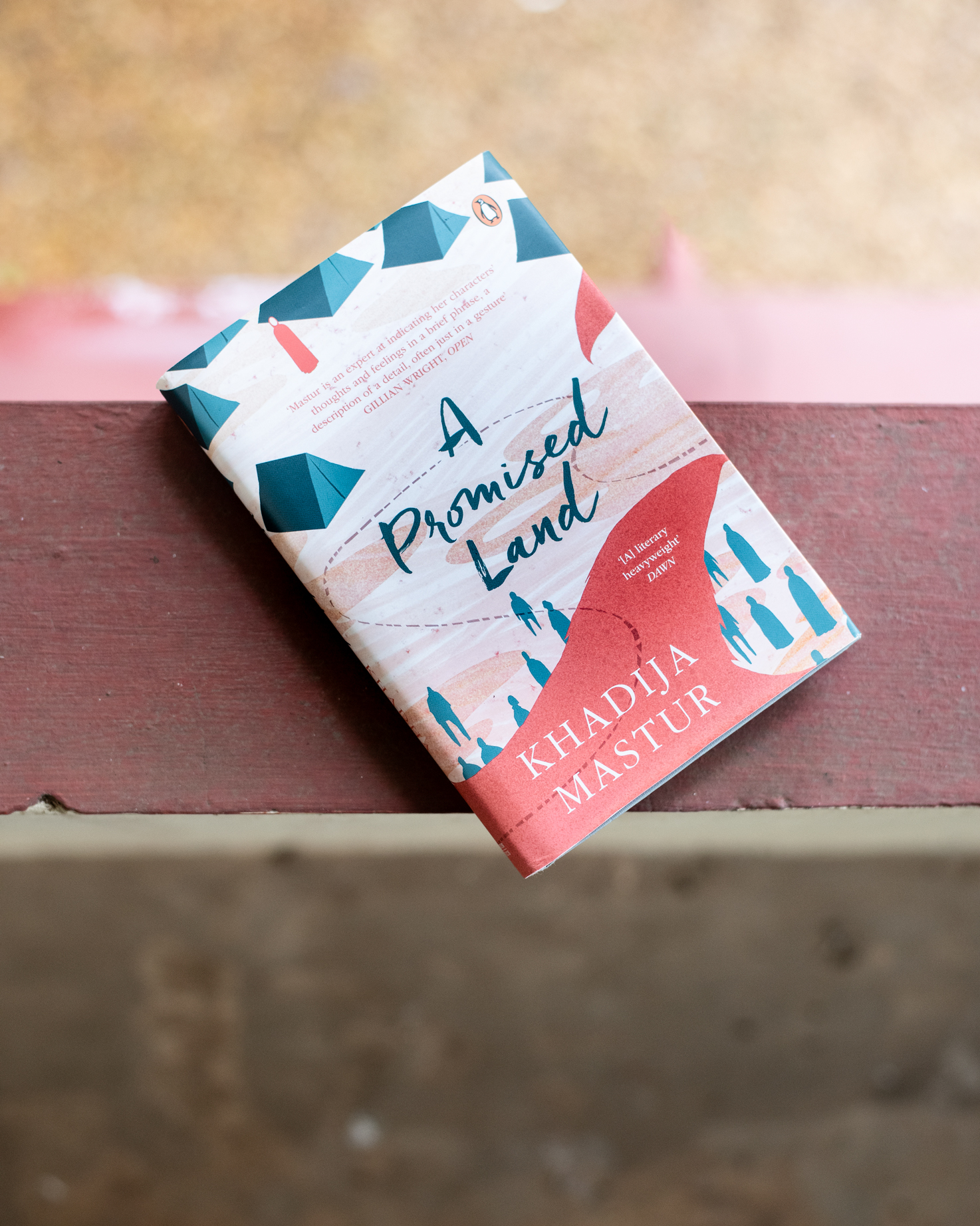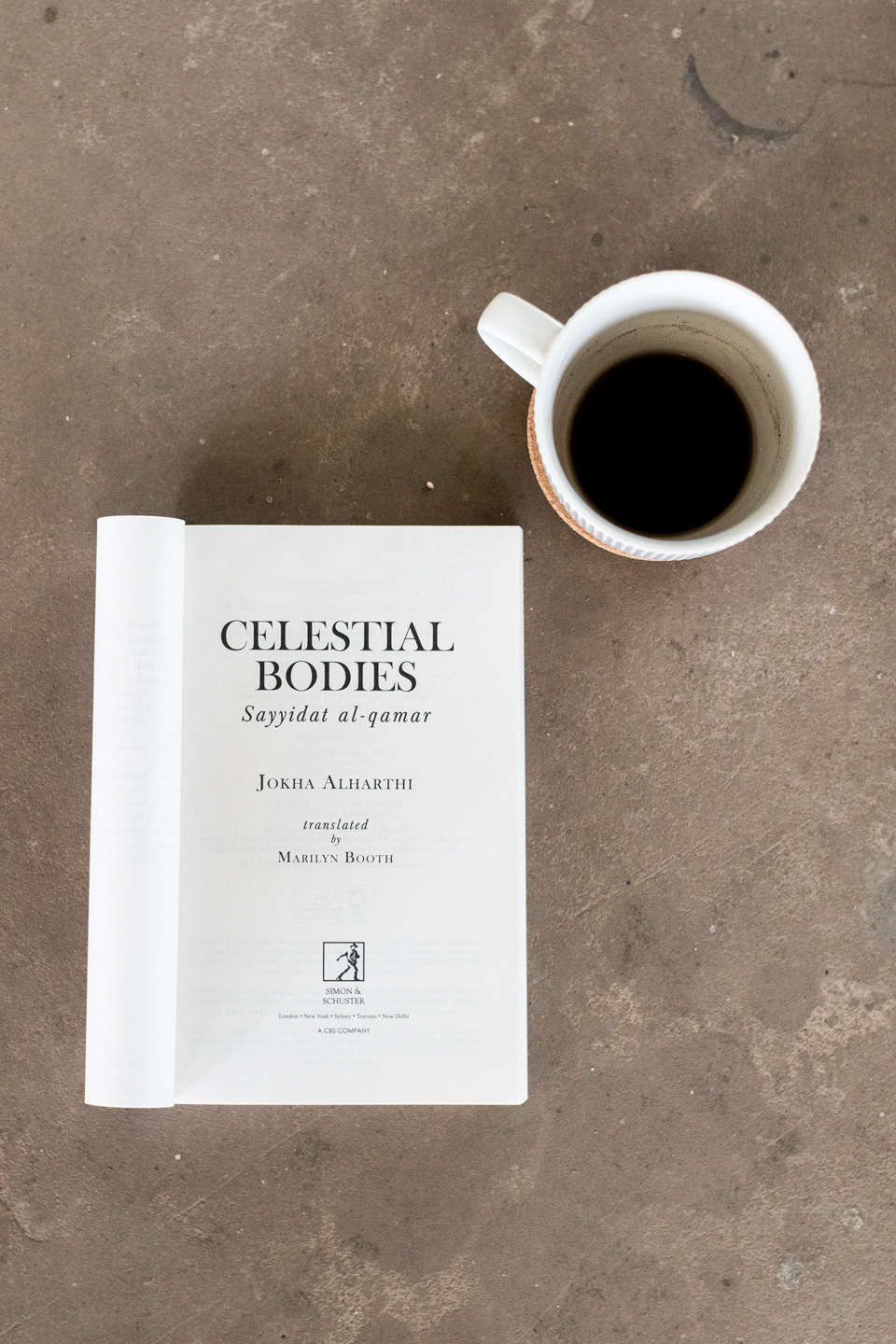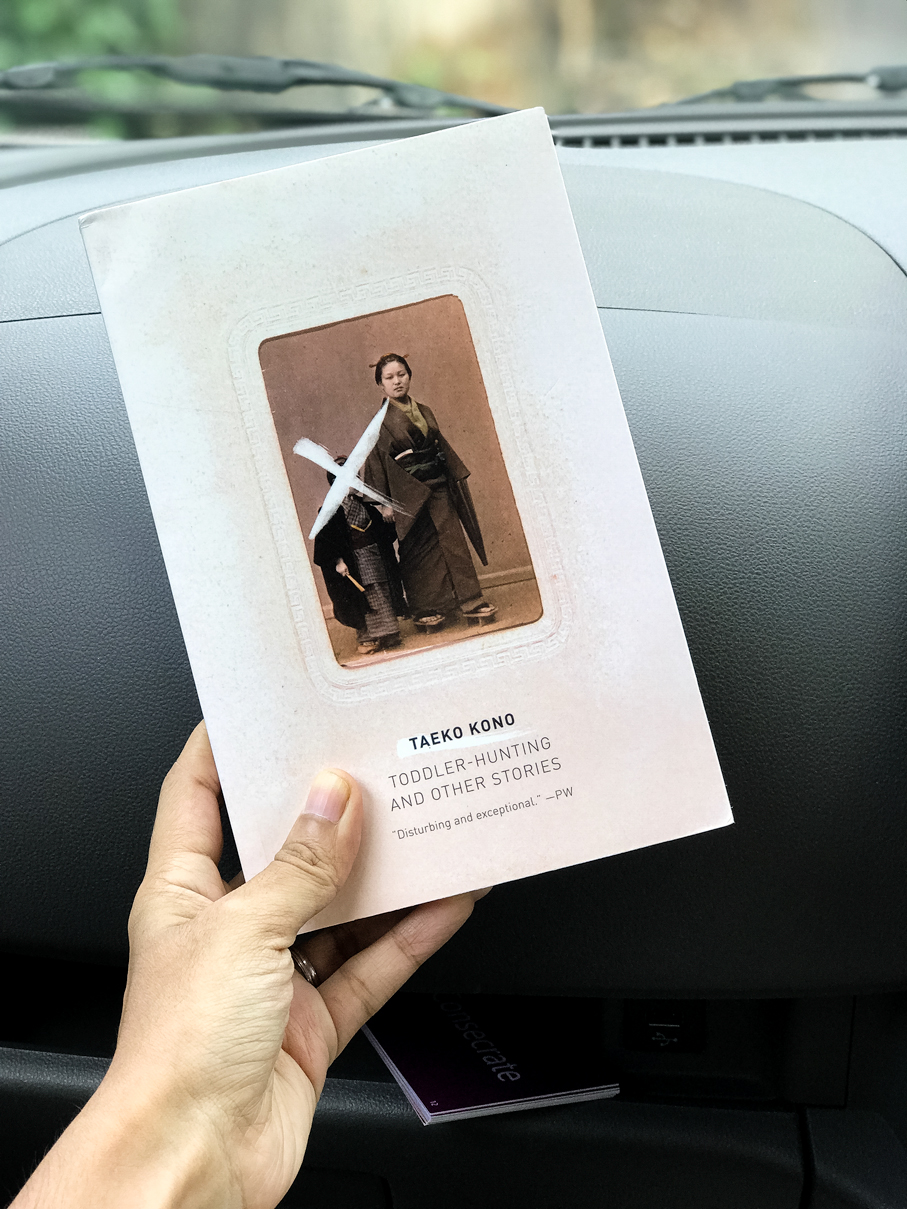Reader. Dreamer. Writer.
It is August! Which means time to celebrate women in translation 2019. Here are some of the best books by women in translation in 2019. This month, I have been looking for more books from South Asia and South East Asia in translation and finally went about and made a list for those who have been searching like me. This list includes books set in South Asia, South East Asia, South America and Middle east — ‘diverse books in translation’ being the more popular term. Be it post partition tragedies, or feminist horror stories or an Omani family saga, this list has got all you need to spend an incredible Women in Translation #WIT month.

1.A Promised Land by Khadija Mastur, translated from the Urdu by Daisy Rockwell
When I read Mastur’s The Women’s Courtyard;, I thought it was a book much ahead of its times. She promises to be just as fierce and compelling in A Promised Land. The story begins after the Partition of the Indian subcontinent (which makes it a relevant read for today considering the recent political tide on Jammu and Kashmir, the region that bore the brunt of the partition). It is fast paced and throws a critical lens on the shoddy rehabilitation schemes, corrupt bureaucrats and women who are subjected to sexual abuse. Mastur’s strength lies in her undaunted decision to give an agency to single women and also empower them to exercise a choice in both her books. She prises open idealistic political dreams of each country and says the women always bore the brunt of war, and patriarchy, be it in a new country or old.
If you are interested in more books centred around the partition of the sub continent, check out my list on Reading Women.
2.Celestial Bodies by Jokha AlHarthi, translated from the Arabic by Marilyn Booth
Reading Celestial Bodies; was a spinning, unadulterated experience. I had to pace back and forth from the family tree on the first page to the POV in the novel to keep track of the sprawling characters. But it was so worth it! The novel is almost spiralling, revolving —with time jumps, snatched deaths, new characters. It encompasses the history and culture of Oman through the royals, immigrants, slavery, Christian missionaries who started hospitals, custom of multiple wives, invasion of the English language in administration, Bedouin lifestyle — I could go on and on. If you’ve ever stayed in the country, this makes an even more delightful read through references to Vimto, dark Omani sweets, halwah, fresh dates, Mc Donald’s dinners and more.
Celestial Bodies might be lost on those who can’t understand the dynamics of large families, and that relationships are often mangled, tangled and messy, in joint, non-white families. This book was a joy and I urge you to give it a chance, and if that fails, one more chance.

3.The Remainder by Alia Trabuco Zerán, translated from the Spanish by Sophie Hughes
It is tricky to translate languages as Spanish and capture the essence and rhythm of the original language in English. Yet, here is The Remainder, a debut novel, translated with remarkable expertise. The prose was bewitching and the characters — children of ex militant parents who fought against the Pinochet dictatorship — made me feel as if I know them. Felipe, who sees dead bodies and loves numbers, Iquela, who translates from the Spanish, and Paloma, a heavy smoker, are on a cross country road trip through Chile to retrieve Paloma’s mother’s body (which is on a plane diverted to Argentina). If you love words and language, this might be for you.
4.Yashodhara by Volga, translated from the Telugu by P. S. V. Prasad
In a world where women are expected to remain within the four walls of the household and “Women have only passions. The moment they begin to think, they go mad” is the belief, Yashodhara, wife of Prince Siddhartha, is a rebel, quiet but firm. She fights for her beliefs, debates with the older generation, understands the young prince’s detachment to worldly pleasures.
I loved that the book isn’t another man’s story told through women’s eyes (like The Forest of Enchantments, The Silence of the Girls) but Yashodhara’s very own. She argues for the cause of women, questions traditions, ensures that women get a choice for spiritual learning just as men and in the end follows her own dreams, not the path her husband Siddhartha chooses for himself. I was saddened that the reimagining does not explore the life of Yashodhara after Siddhartha leaves for a saintly life, which was what I was longing for; it takes a time jump to her old age. My heart still rests with Volga’s The Liberation of Sita where she gave a feminist twist to the ladies of Indian myths, but Yashodhara is a lovely read too.

5.Tokyo Ueno Station by Miri Yū, translated by Morgan Giles
Tokyo Ueno Station is a short book but deserves your undivided time and attention. It follows a ghost of a homeless man, Kazu, and through him we look at the history of Japan from the 1930s to the destruction caused by the tsunami in 2011 and the outrage against the 2020 Olympic bid. There are snippets of conversations, buried memories and many events, big and small, that shaped Japan (the Emperor, tsunami, Olympics, park clean ups, homeless taking shelter in theatres/public baths/libraries, plight of the downtrodden society who are seen as an eye sore during events like the Olympics).
Short Stories
Here are some excellent short story collections to bite into if you are short of long, leisurely hours to indulge in a novel.
6.Mouthful of Birds by Samantha Schweblin, translated from the Spanish by Megan McDowell
Mouthful of Birds has to be one of my favourite short story collections this year — weird, strange and hypnotic. A woman wonders why her husband drove off when she got out of the vehicle until she discovers other abandoned women. A baby is spat out. A parent kills a butterfly but is alarmed at the action. A girl eats live birds as she alternates staying with her divorced parents. Sure, as typical of short story collections, there are a few stories that are unsatisfying but stay for the impeccable first paragraphs and gorgeous prose.
7.Arid Dreams by Duanwad Pimwana, translated from the Thai by Mui Poopoksakul
Fresh, original stories are such a joy, and Arid Dreams, translated from the Thai has 13 stories. A man who is about to be executed asks his prison mate to pass on a story to a hooker, a man is surprised that the woman he takes a fancy to will sleep with only foreign tourists and not Thai men, another man is exasperated that his woman had an affair with his best friend, a woman imagines her husband succumbing to his fatal accident and wonders if she’ll re-discuss the colour of the wallpaper with him, a childless woman carves wooden dolls, a man is obsessed with his wife’s fading beauty and tattooed eyebrows.
I enjoyed the slowness of stories, the way they bring alive the local surroundings and the troubles bubbling in the character’s lives even though these stories are mostly about men and those about women are laced through the men’s gaze.
8.Book of Tehran edited by Fereshteh Ahmadi
Slightly cheating here because this anthology has ten stories by men and women, in an almost equal measure, though in my defense the women translators outbid the male counterparts (only two). A girl writes a letter to her aunt who had convinced her that her mother was an unpleasant woman, four college students discuss marriage, an artist longs to create from grief, and a young woman chats with her neighbour’s wife. Since each story is by a different writer, it becomes impossible to generalize the book into a particular writing style but a handful of stories revolve around aspirations, closed spaces and relationships between women.
It is good to note that Comma Press has a whole ongoing series of short story collections set in different cities. I have my eyes on the Cairo book next.

9.Apple and Knife by Intan Paramaditha, translated from the Indonesian by Stephen J Epstein
This was released in English in late 2018 by Harvill Secker (and earlier by Brow Books) but I feel it deserves a mention in the 2019 lists because it has been so under represented last year. This book is an intoxicating read, set in everyday Indonesia with bizarreness creeping in at unexpected moments. Think suicidal porcelain dolls, bottled screams, sex and taboos. Cinderella’s step sisters, with self mutilated feet and pecked blind by a crow, tell another version of the happily-ever-after fairytale, a ‘devil woman’ pays a man to act out her sexual fantasies and a town beauty spends her evenings with a deformed gravedigger — disfigurement and body degradation is a theme in many stories. Pick this up for horror stories, dark and sinister.
10.Toddler Hunting and other stories by Taeko Kōno, translated from the Japanese by Lucy North and Lucy Lower
Taeko Kōno is an under represented author in the English world though she has won major literary awards in Japan. The stories in this collection are disquieting, softly disturbing, cold, open ended and often about middle aged women and couples in strained relationships. Be warned they are quite disturbing, so this isn’t a book for everyone — a woman buys clothes for little boys and finds pleasure in hoping to watch them dress, sadomasochism, wife murdering her own infant because of her husband’s infidelity etc.
11.Written in tears by Arupa Patangia Kalita, translated from the Assamese by Ranjitha Biswas
Republished in 2019, Written in Tears is one of the best short story collections from India. There are insights into the culture of the riot-ridden Assam, ample folk tales and superstitions and the fear crowding the minds of normal people living in an insurgent land. Some stories are as real as could be while some are tinged with magical realism, in either case they shine light on a land and people who are often overlooked in their own country.

12.Flowers of Mold by Ha-Seong Nan, translated from the Korean by Janet Hong
Ha Seong Nan’s stories are described to be “pleasant enough, yet there’s something disturbing just below the surface, ready to permanently disrupt the characters’ lives” and I am here for it. A man who searches through garbage to relate to people, a plot to kill a landlord who increased the rent, a woman who suffers gaps in her memory after she helps a neighbour — these sound like my kind of stories.
13.Memory Police by Yoko Ogawa, translated from the Japanese by Stephen Snyder
One of my highly anticipated reads of 2019 is Yoko Ogawa’s dystopian tale on memory, trauma and loss. I love how Ogawa is so different in each of her books, my favourite being The Housekeeper and the Professor (about friendship and mathematics). Evident from the title, this is a world dominated by ‘memory police’; things disappear and so do memories associated with them. But what happens when bodies disappear?
14.River of Fire by Qurratulain Hyder
River of Fire to Urdu fiction is said to be what ‘One Hundred Years of Solitude by Gabriel Garcia Marquez is to Hispanic literature’ (London Times Literary Supplement). It was initially published in Urdu in 1959 and then written in English by the author herself in 1998. A lovely new edition of the book is published by New Directions this year. The novel covers more than 2500 years of the history of the sub-continent (modern day India, Pakistan and Bangladesh) through Muslim, Christian, Hindu and Buddhist characters who appear in reincarnations, from the Vedic era to post partition (post 1947). The only reason I haven’t picked this up yet is because of its intimidating size and scope. Fingers crossed I rectify this soon.
Translations from India, Japan, Indonesia, Oman and more — The best books for Women in Translation 2019 #WITMonth Click To TweetYOU MIGHT ALSO ENJOY
Three Bengali translated novels — pulp fiction, circus history and ghosts
Favourite Books in the Second Half of 2018
16 Books in the First Half of 2018 that are simply INCREDIBLE
Nine Multi Generational Family sagas that are compelling reads










Thank you for the recommendations.
A pleasure. Hope you will be able to read a few, not particularly from this list, for Women in Translation month x
As someone whose first language is not English, the term “translated fiction” always seemed bizarre to me, since I’ve been reading translated books all of my life. Thanks for the recommendations!
I think the ideal phrase should be translated to English, right? Hope you enjoy if you pick up any of these
I haven’t read a single one of these. Bookmarking and saving up this post. Thank you for sharing.
Oooh. You are in for a treat. Hope you enjoy the ones you pick x
What an amazing list! The creepy sounding Apple and Knife jumps out at me in particular.
Reading anything in translation is a huge gap in my library, so I think I’ll be referring back to this list a lot! I was at a talk a few years ago where someone was saying reading books in translation is a great way to improve your life
I am glad you loved it. Apple and Knife is so creepy and shocking. I hope you’ll be able to read some fantastic books in translation this year
Great post.
http://www.rsrue.blogspot.com